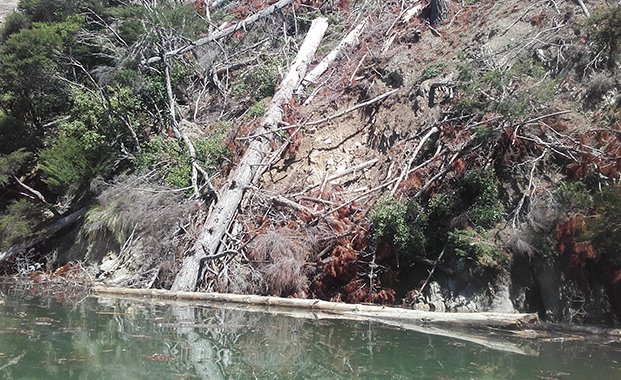Lincoln University pays tribute to Distinguished Professor Steve Wratten
12 March 2021 | Research News
As the Lincoln University whānau mourns the loss of Distinguished Professor of Ecology Steve Wratten, his contributions to teaching, research and applied science will long be remembered and celebrated
Professor Wratten joined Lincoln University in 1993 as a Reader (Associate Professor) in the Department of Entomology, after arriving in New Zealand from the UK. He immediately began working to establish a postgraduate and postdoctoral research group in insect ecology, with a sharp focus on solving practical problems in insect pest management in agriculture and horticulture, and the conservation and protection of the environment.
Within two years he had won a Lincoln University Special Achievement Award for Excellence in Research and Creative Activity, and within three years was appointed to a Personal Chair in Ecology, followed soon after by election as a Fellow of the Royal Society of New Zealand. A Fellowship of the Entomological society of America was to follow later.
The citation for the Royal Society Fellowship described him as an ‘outstandingly productive ecological entomologist and a gifted communicator’ who through his research and the establishment of research and teaching facilities at Lincoln University and the supervision of PhD students, has made a ‘substantial impact on agricultural entomology and plant protection in New Zealand’.
In 2004 Professor Wratten received a second Lincoln University award, for Sustained Excellence in Teaching. The citation for that honour described him as a ‘charismatic and inspirational teacher’. He went on to co-represent Lincoln University at the 2005 National Tertiary Teaching Awards.
In 2019 he received the ultimate accolade of appointment as a ‘Distinguished Professor’.
As Professor Wratten’s career at Lincoln University flourished, he became nationally and internationally known for his work on the ecological basis for the biological control of agricultural, horticultural and viticultural pests.
“Ecology is tremendously relevant for a country like New Zealand, with its economy so heavily dependent on land-based production,” he said.
“Down at the ‘grassface’, plant and insect interactions are fundamental to agriculture, horticulture and viticulture.”
Three examples from many illustrate Professor Wratten’s practical and applied application of science to areas of national and regional economic importance or potential importance.
First, in 1999 Lincoln University and Heinz Wattie Australasia jointly established Kowhai Farm, a certified organic mixed cropping farm in Lincoln, with the aim of exploring scientifically the practices and economics of commercial-scale organic farming.
Professor Wratten’s involvement with Kowhai Farm allowed him to explore and apply the science of using ‘nature’s services’, as he termed them, to control insect pests in farming operations and to promote natural pollination and other benefits.
He was particularly interested in paddock margin management and installed ‘bumble bee motels’ and ‘beetle banks’ around the borders of the farm. To demonstrate the efficacy of this work Professor Wratten would regularly conduct farm walks on tracks around Kowhai Farm so visitors could experience the application of science in a model organic farming context.
A second example was the leadership and close involvement of Professor Wratten in the ‘Greening Waipara’ project. Funded by the Foundation for Research, Science and Technology, Greening Waipara was all about bringing environmental sustainability and biodiversity to the Waipara wine growing region of North Canterbury. The aim was to restore biodiversity to the vineyards of the area and reduce pesticide use, to meet the expectations of overseas wine markets that New Zealand’s production methods were environmentally friendly. The project started in 2005 and more than 30 vineyards participated.
In another wine area, Marlborough, he was closely involved, through the work of his PhD students, with research associated with commercial organic viticulture and winemaking.
A third example is Professor Wratten’s leadership of a biofuels research project, funded in 2008 by the Foundation for Research, Science and Technology. The project, led by Lincoln University with key industry partner Chevron New Zealand (marketers of the Caltex brand), investigated raising the productivity of poor quality land through the development of feedstock for making biofuel.
Professor Wratten said the identification of appropriate fuel crops for New Zealand’s less productive areas, together with ways of increasing their yield, ‘was the key to starting a new feedstock business for the energy sector’.
Throughout his long career at Lincoln University, Professor Wratten’s contribution has always been the application of science to solving ecological and agri-business problems and enhancing productively in a sustainable and environmentally friendly manner.
With a career output of numerous books, book chapters, journal articles (around 400), research papers, media presentations, speaking engagements, conference presentations, visiting professorships, postgraduate supervisions (close to 100 PhDs), scientific body memberships and appointments within Lincoln University such as his roles as Biocontrol Theme Leader of the Bio-Protection Research Centre, and five years in the 1990s as Lincoln University’s Academic Programme Director, it is with complete justification that Distinguished Professor Wratten should be described by Acting Vice-Chancellor Professor Bruce McKenzie as ‘one of Lincoln University’s most sought-after academics’.
Distinguished Professor Wratten is survived by his wife Claire, who has always been actively involved in campus activities through the Lincoln Women’s Group, and two children.


